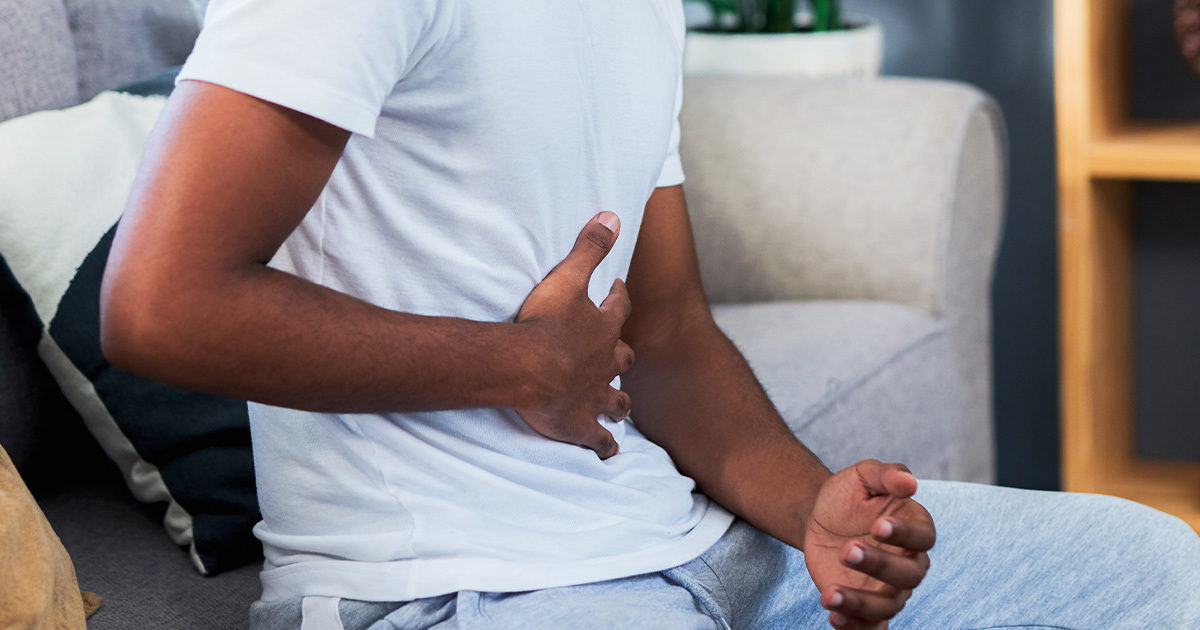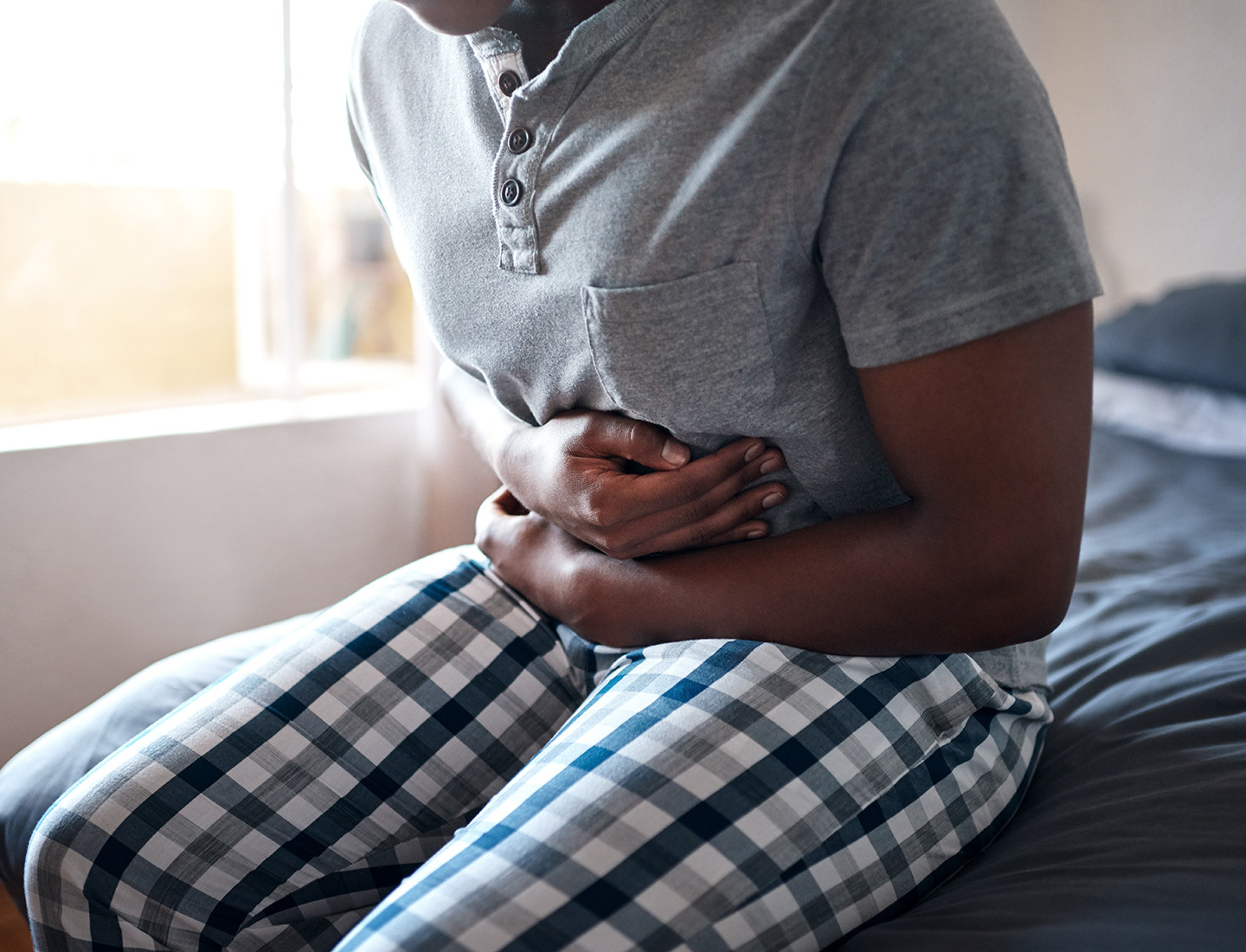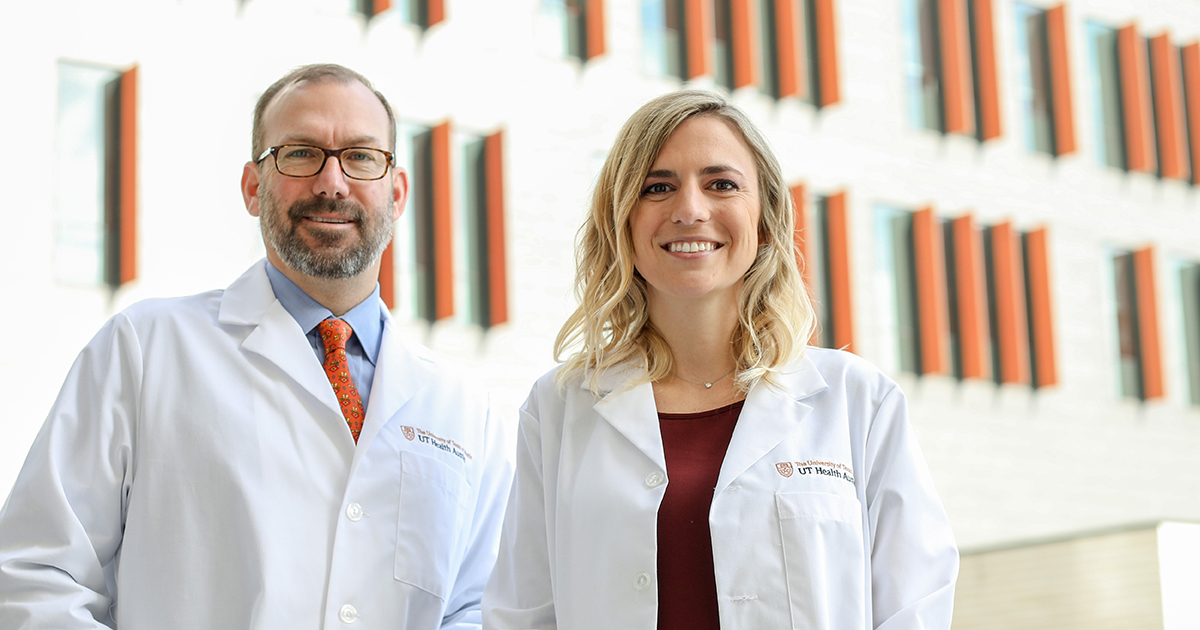6 Signs Indicating You Should See a Gastroenterologist
New or worsening symptoms may be a sign something is amiss in your gut
Reviewed by: Deepak Agrawal, MD, MPH
Written by: Lauryn Gerard

Update: This piece was edited on November 11, 2022 to reflect the most recent colorectal cancer screening recommendations from the U.S. Preventive Services Task Force (USPSTF).
Your gut health can significantly impact your quality of life, and while it may feel awkward speaking with your doctor about certain symptoms you are experiencing, most of us will agree it’s worth gaining a sense of relief. Gastroenterologists are experts who specialize in the complexities of the human gastrointestinal (GI) tract, which begins with the mouth and is followed by the esophagus, stomach, small intestine, and large intestine (colon) before ending with the anus. The liver, pancreas, and gallbladder are solid organs associated with the digestive system. GI specialists can offer various screenings and treatment options to help you maintain and improve your gut health throughout your lifetime.
It can be difficult at times to determine what may be normal GI fluctuations and what could be cause for concern. UT Health Austin board-certified gastroenterologist and fellowship-trained hepatologist in the Gastroenterology clinical practice within Digestive Health, Deepak Agrawal, MD, MPH, specializes in treating patients with digestive health and liver conditions. Dr. Agrawal offers advice on when you should seek out the help of a GI specialist.
“When we consume food, our bodies digest and absorb that food and anything that remains is excreted from the body. Gastroenterology deals with all the organs involved in this process, including the esophagus, stomach, small intestine, colon, pancreas, bile ducts, and liver. Symptoms associated with problems in these organs can be non-specific, such as belly pain, nausea, weight loss, diarrhea or constipation. These symptoms may also occur when we have eaten something bad or something that our bodies are having difficulty digesting. The important thing to know is when further tests are needed,” explains Dr. Agrawal.
1. Abnormal Bowel Movements or Change in Bowel Habits
You are likely familiar enough with your own body to know the frequency in which you experience bowel movements and what may be deemed normal or not normal for you. While there isn’t a set pattern that is considered “healthy” or “unhealthy,” if you notice a sudden and persistent change in your usual bowel habits, it may indicate an underlying health condition, such as inflammatory bowel disease, irritable bowel syndrome, celiac disease, or other GI problems.
If you are experiencing constipation (excessive straining, hard stools, or significant decrease in frequency) or diarrhea (runny stool or stools multiple times a day) that persists for more than a few days, you may want to speak with your doctor.
Additional symptoms that may be cause for concern include:
- Blood or mucus in stool
- Persistent nausea or vomiting
- Severe abdominal cramps or pain
- Unintended weight loss
2. Rectal Bleeding
Observing blood in your stool can be very alarming. However, before jumping into full panic mode, it’s reassuring to know that it could be related to something as minor as hemorrhoids, which are typically easy to treat and often go away on their own. If you notice blood in your stool, while it may not be serious, it is still a good idea to inform you doctor in case it is related to something more serious, such as colorectal cancer.
“Rectal bleeding can be spotted in a few different ways, such as on the toilet paper you used, in the water of the toilet bowl, or directly in your stool,” says Dr. Agrawal. “It can also appear in different colors depending on where the bleeding is occurring in the digestive tract, ranging from bright red to a dark maroon or even black. Your doctor will evaluate your symptoms and possibly run tests to determine the cause of your rectal bleeding and then work with you on determining the best treatment plan.”
3. Abdominal Pain or Bloating
While occasional pain or bloating typically goes away on its own it can also be treated at home with over-the-counter medications. However, if you are experiencing abdominal pain or bloating after every meal you should make an appointment with a gastroenterologist.
“Abdominal pain and bloating are not unusual. In many cases the cause can be linked to indigestion due to too much gas built up in the stomach and bowels. The body does a good job of fixing this problem on its own; however, if you notice it occurs after eating or when consuming certain foods or it continues to get worse or does not go away within a day or two, it may be your body’s indication of an infection, food intolerance, a problem with absorbing digested food, an imbalance of bacteria in your gut, or the sign of a very sensitive gut that you will want a specialist to diagnose and treat so that you can get back to feeling better,” says Dr. Agrawal.
4. Frequent Heartburn
Frequent heartburn is not only extremely uncomfortable, but can also be a sign of gastroesophageal reflux disease (GERD), which can cause Barrett’s esophagus, a precancerous condition of the esophagus. Turns out, you don’t actually have to live with heartburn or restrict your diet of the foods you love. Trained clinicians, such as those in the Heartburn and Esophageal Disorders clinical practice, can help you manage your heartburn with medications or provide surgical options to treat the underlying cause of your heartburn.
Patients at risk for or diagnosed with Barrett’s esophagus can be screened with an upper endoscopy to determine the appropriate treatment plan for decreasing or eliminating the likelihood of progression to esophageal cancer.
5. Esophageal Pain or Difficulty Swallowing (Dysphagia)
Esophageal pain (esophagitis), difficulty or painful swallowing, coughing or choking while eating, regurgitation, and food impaction (food becoming stuck in the chest) are all potential signs of a problem affecting the upper part of your digestive system. These symptoms can also greatly impact your quality of life and your ability to eat, which could lead to malnutrition and dehydration.
“Difficulty swallowing can be due to an abnormal narrowing (stricture) in your esophagus or problems with the contraction of your esophagus,” says Dr. Agrawal. “Your doctor can make an accurate diagnosis using X-ray, performing an endoscopy, or conducting a clinical exam to measure contractions to determine the cause of your discomfort and begin administering treatment.”
6. Age or Medical History
Colorectal cancer often begins as precancerous polyps (small clumps of cells that form on the lining of the colon or rectum) that can be detected and removed during a colonoscopy. The U.S. Preventive Services Task Force (USPSTF) suggests adults aged 45 to 75 be screened for colorectal cancer every 5 to 10 years or as frequently as recommended by the patient’s healthcare provider. Some patients should be screened even earlier if certain risk factors exist. Your doctor will be able to advise you on your level of risk based on your race, history of other existing medical conditions, and prior family history. Other screenings may also be recommended if you have a diagnosis of Barrett’s esophagus or other factors that place you at a higher risk for certain conditions.
“To maintain overall gut health, I tell my patients to follow a balanced diet, exercise regularly, get a good night’s sleep, and control their stress levels. But, we all know that even if you are working hard to maintain your health, not every disease or condition can be prevented. Listen to your body and reach out to your doctor when you notice new or worsening symptoms,” says Dr. Agrawal.
The Digestive Health clinical practice takes an individualized and scientific approach to treating gastrointestinal conditions. Your care team is made up of a variety of GI specialists who work with you on meeting your health goals, both in the care room and beyond, to get you back to optimal health.
To make an appointment or to learn more about Digestive Health, call 1-844-GI-AUSTIN (1-844-442-8742) or visit here.

